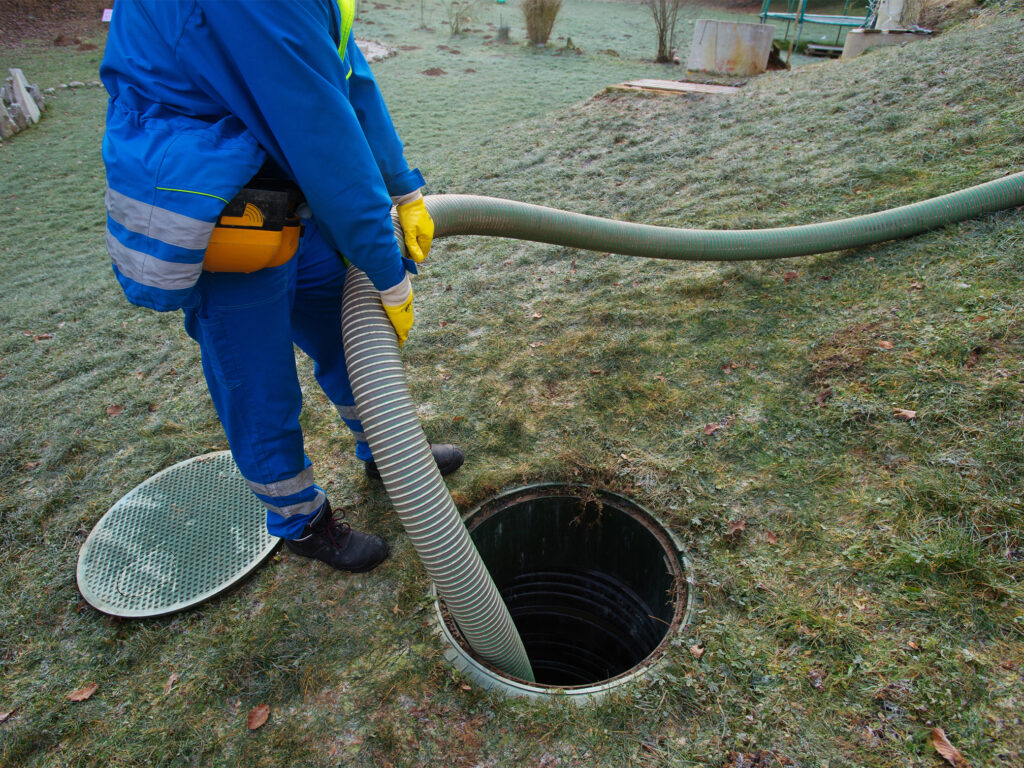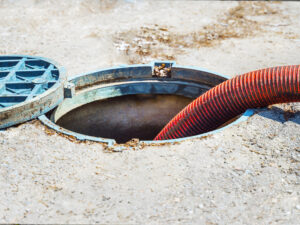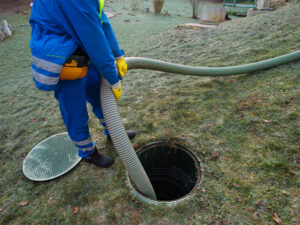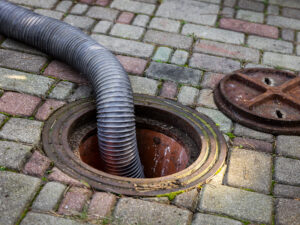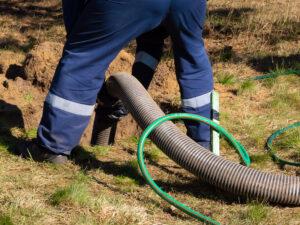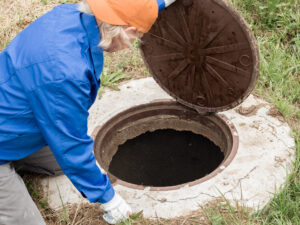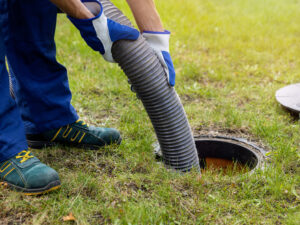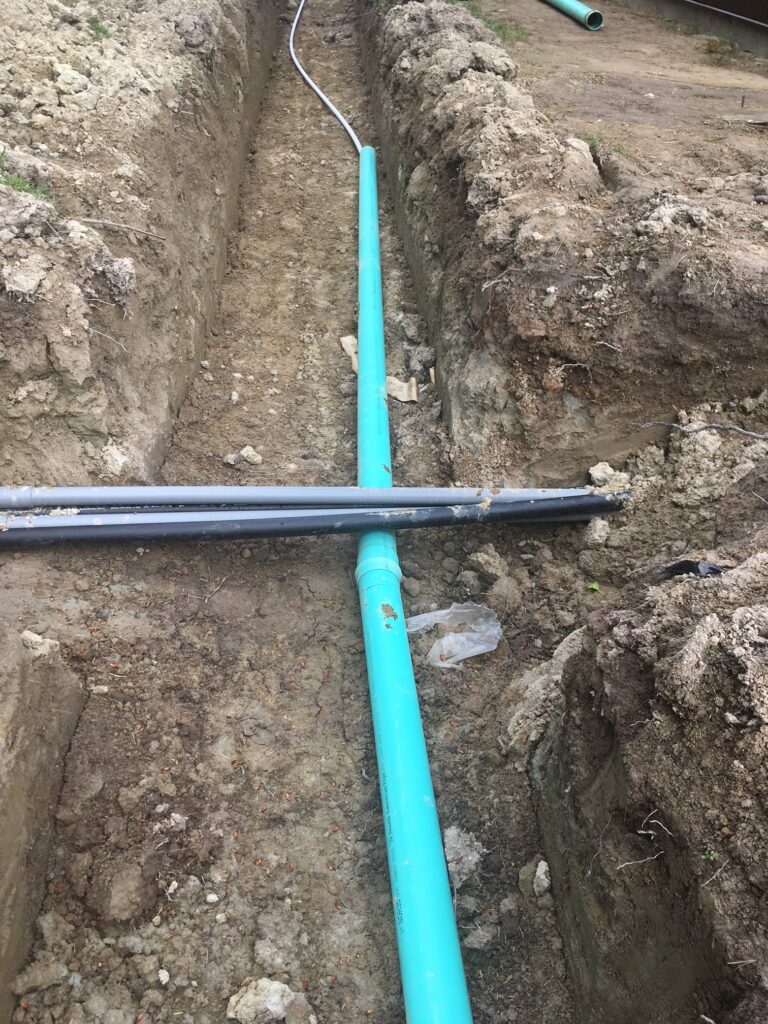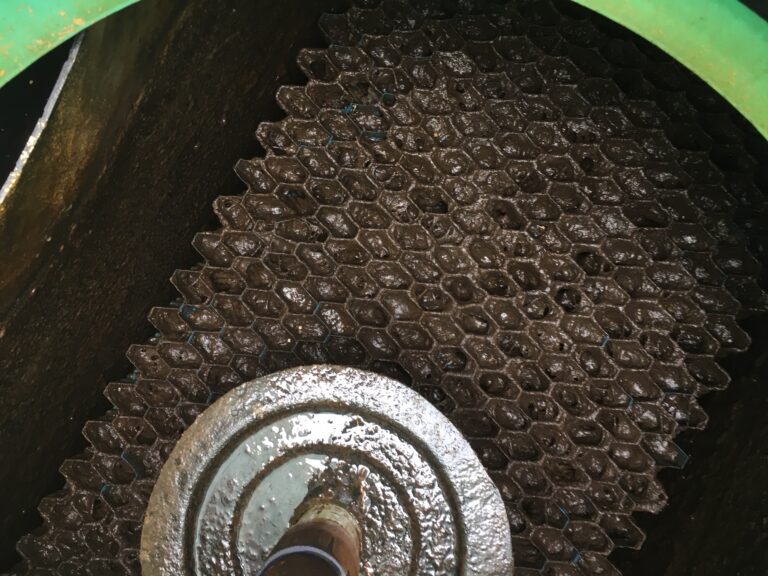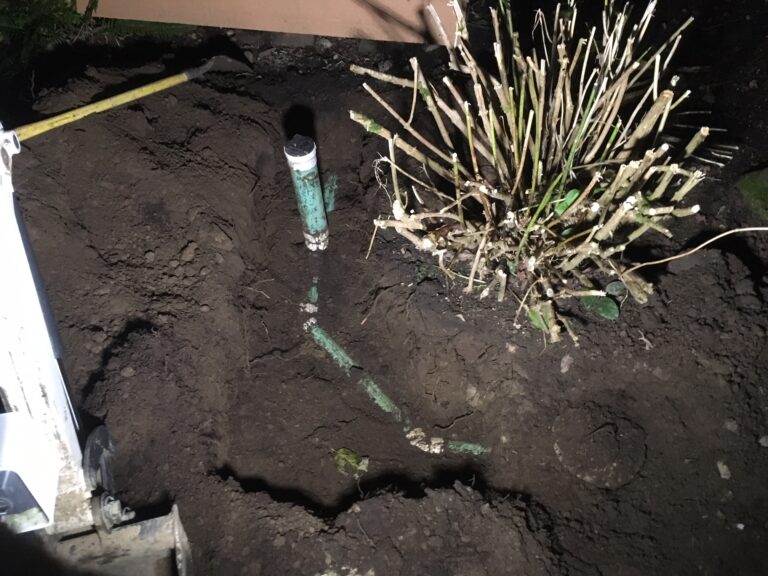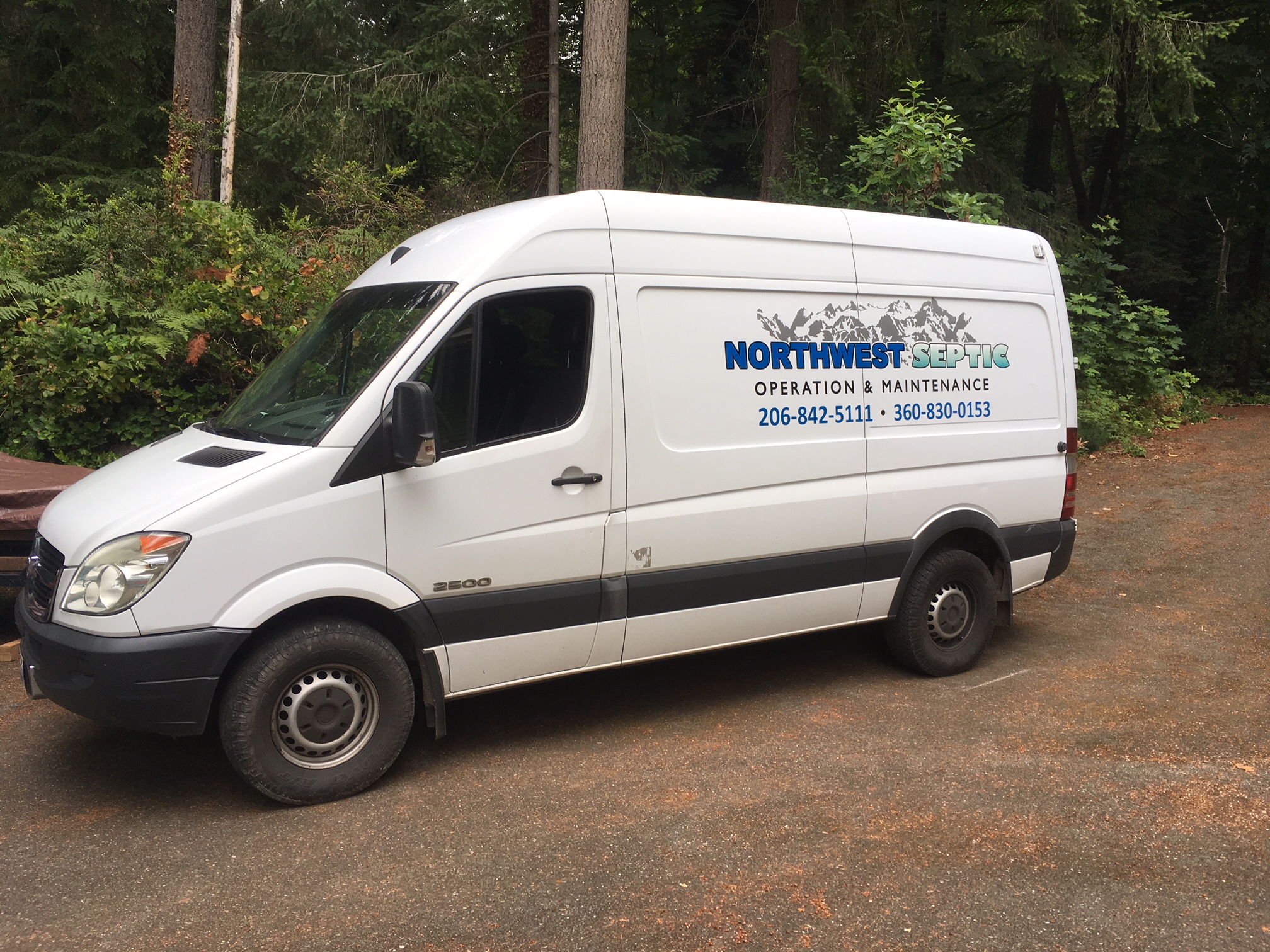For many Kitsap County, WA residents living in areas without access to municipal sewer systems, especially around Poulsbo, Silverdale, Kingston, Bainbridge Island, Hansville, Bremerton, Port Orchard, and nearby areas, septic systems are the unsung heroes of wastewater treatment. These buried marvels silently process household sewage, ensuring a clean and healthy environment for your home. But like any hardworking system, septic tanks require regular maintenance to function optimally. One of the most common questions homeowners have is: How long it takes to pump a septic tank?
Before diving into the nitty-gritty of pumping timelines, let’s take a step back and explore the importance of septic system maintenance.
A Brief Overview of Septic Systems
A septic system is a small-scale wastewater treatment facility typically used in single-family homes. It consists of two main components:
- Septic Tank: This buried tank acts as a settling chamber, separating solids from the liquid effluent. Bacteria decompose the solids anaerobically (without oxygen) while the clarified effluent flows out to the drainfield.
- Drainfield: The drainfield is a network of perforated pipes buried in a gravel bed. The effluent from the septic tank slowly trickles through the drainfield, where it’s further treated by naturally occurring bacteria in the soil and eventually percolates back into the groundwater.
Importance of Regular Maintenance
Proper septic system pumping and maintenance is crucial for several reasons:
- Prevents System Failure: A neglected septic tank can become overloaded with solids, leading to backups in your drains and potential environmental hazards. Regular pumping removes accumulated solids, ensuring your system functions efficiently.
- Protects Your Investment: A well-maintained septic system will last for decades. Neglecting maintenance can lead to costly repairs or even complete system replacement.
- Protects Public Health: A properly functioning septic system prevents untreated wastewater from contaminating groundwater, a vital drinking water source for many communities.
By scheduling regular septic tank pumping and inspections, you can ensure your system operates smoothly, safeguard your investment, and protect the environment.
Understanding Septic Tank Pumping
Septic tank pumping involves removing the accumulated sludge and scum from the tank. The pumping and maintenance frequency depends on several factors, but a general rule of thumb is to have your septic tank pumped every 3-5 years.
Factors Affecting Septic Tank Pumping Time
The actual time it takes to pump your septic systems can vary depending on several factors:
- Septic Tank Size and Capacity: Larger septic tanks naturally take longer to pump than smaller ones. A typical single-family home in Kitsap County might have a 1,000-gallon septic tank, while a larger household with multiple occupants may have a 1,500-gallon tank.
- Level of Fullness: The amount of sludge and scum in the tank directly affects pumping time. A heavily overloaded tank will take longer to pump than one regularly maintained.
- Accessibility of the Tank: The ease of access to your septic tank cover will influence pumping time. Readily accessible tanks located in clear areas can be pumped quickly, while those buried deep or obstructed by landscaping elements may require additional time for excavation.
- Type of Waste: The type of waste entering your septic system can impact pumping frequency. Items like grease, coffee grounds, and eggshells can accelerate solids buildup, requiring more frequent pumping.
- Maintenance History: Regular maintenance practices, such as avoiding disposal of harmful substances and using septic tank additives responsibly, can contribute to a longer lifespan between pumpings.
- Weather Conditions: Heavy rain or saturated ground conditions can make accessing the septic tank more challenging and may extend pumping time. Our team at Northwest Septic Operation & Maintenance is experienced in working under various weather conditions in Kitsap County and will take necessary precautions to ensure a safe and efficient pumping process.
- Equipment Used: The type of pumping equipment used can also affect pumping time. NW Septic O&M utilizes modern, well-maintained equipment for efficient and thorough septic tank cleaning.
- Professional Expertise: The septic service provider’s experience and skill play a significant role. A seasoned professional like NW Septic O&M can assess your system quickly, identify potential issues, and perform the pumping efficiently.
How to Reduce Pumping Time?
Here are some proactive steps you can take to minimize the time it takes to pump your septic tank and keep your system functioning optimally:
- Regular Maintenance: Schedule regular septic tank inspections and pumping services with a reputable company like NW Septic O&M. Based on your specific system and usage, we can recommend the optimal pumping frequency.
- Proper Waste Disposal: Avoid disposing of items like grease, coffee grounds, eggshells, dental floss, and harsh chemicals down your drains. These substances can clog your drainfield and accelerate solids buildup in the septic tank, necessitating more frequent pumping.
- Use of Septic Tank Additives: Some septic tank additives claim to break down solids and extend pumping intervals, but their effectiveness can be debatable. Consult with a septic professional like NW Septic O&M before using any additives to ensure they are compatible with your system. Feel free to reach out to the experts at (360) 994-1330 for an accurate estimate.
- Efficient Use of Water: Conserving water helps reduce the overall load on your septic system. Fix leaky faucets, take shorter showers, and use water-efficient appliances to minimize wastewater entering the tank.
- Professional Services: Partner with a qualified septic service provider like NW Septic O&M. Our expertise in septic system maintenance can help identify potential problems early on and prevent costly repairs down the road. Regular inspections by our credible team of experts can also help determine the optimal pumping schedule for your specific system. Contact us at (360) 205-1663 to schedule an appointment with our team today.
- Regular Inspections: Don’t wait for problems to arise before scheduling a septic tank inspection. Our team at NW Septic O&M recommends scheduling inspections every 1-2 years and pumping every 3-5 years, depending on your system’s usage. Regular inspections can identify potential issues like cracks in the tank or drainfield problems before they become major headaches.
By following these simple tips, you can extend the lifespan of your septic system, minimize the need for frequent septic pumping, and save money in the long run.
How Long Does It Take for a Septic Tank to Fill Up After Pumping?
The time it takes for your septic tank to fill up after pumping depends on several factors, including the size of your tank, the number of occupants in your household, and your water usage habits. Generally, a well-maintained septic tank for a typical single-family home in Kitsap County can take 3-5 years to fill up again after pumping.
How Much Does It Cost To Pump A Septic Tank?
The cost of septic tank pumping can vary depending on your location, the size of your tank, and the ease of access. NW Septic O&M offers competitive rates and transparent pricing, so you’ll know exactly what to expect upfront. Feel free to reach out to our waste management experts at (360) 205-1663.
FAQ
1. How often should I pump my septic tank?
The recommended pumping frequency can vary depending on your specific system and usage. A general rule of thumb is every 3-5 years. However, consulting with a septic professional like NW Septic O&M is the best way to determine the optimal pumping schedule for your needs. Factors like household size, water usage habits, and the presence of a garbage disposal can all influence pumping frequency.
2. What are the signs that my septic tank needs pumping?
Here are some indicators that your septic tank might be nearing capacity and require pumping:
- Slow drains or backups in your drains
- Gurgling sounds coming from your drains
- Toilets flushing slowly or not at all
- Sewage odors around your leach field
- Lush, green patches of grass over your drainfield (compared to the rest of your lawn)
If you experience any of these signs, don’t hesitate to contact NW Septic O&M for a prompt inspection and pumping service. Contact us at (360) 205-1663 for professional assistance.
3. What happens if a septic tank is never pumped out?
A neglected septic tank can lead to a host of problems, including:
- System backups: Solid waste can accumulate in the tank and clog the drainfield, leading to sewage backups in your drains and toilets.
- Environmental contamination: Untreated wastewater can overflow from the drainfield and contaminate nearby soil and groundwater, posing a health risk.
- Structural damage: A full septic tank can pressure the tank itself, potentially causing cracks and leaks.
- Costly repairs: Ignoring septic tank maintenance can lead to expensive repairs or even complete system replacement.
Schedule an appointment with the experts at NW Septic O&M at (360) 205-1663 for professional septic tank pumping, inspection, repairs, and maintenance services.
4. Is Septic Tank Pumping Bad for the Environment?
Regular septic tank pumping is actually beneficial for the environment. By removing accumulated solids and scum, pumping prevents untreated wastewater from contaminating the soil and groundwater. Our team at NW Septic O&M adheres to environmentally responsible disposal practices for the pumped septic material. Contact us at (360) 205-1663 for an accurate estimate.
5. What Should I Do After My Septic Tank Is Pumped?
After your septic tank is pumped, it’s a good idea to:
Avoid overloading the system: Spread out laundry loads and avoid excessive water usage for a few days to allow the bacteria in the tank to repopulate.
Maintain proper waste disposal habits: Continue to avoid flushing harmful substances down the drain.
Schedule regular inspections: Regular septic inspections by NW Septic O&M can help identify potential problems early on and ensure your septic system continues to function efficiently. We also give proper professional maintenance practices to extend the lifespan of your system.
Final Takeaway
Living in Kitsap County, WA, with a septic system comes with the responsibility of its proper maintenance. Understanding your septic system and taking proactive maintenance steps are crucial for a healthy and functional home environment. By scheduling regular inspections and pumping services with a reputable company like Northwest Septic Operation & Maintenance, you can ensure your septic system operates smoothly for years to come.
We’re a trusted leader in septic tank pumping and maintenance services in Kitsap County. Our team of licensed and experienced professionals is committed to providing exceptional service, expert advice, and environmentally responsible disposal practices. We understand the unique needs of septic system owners in the region and are dedicated to helping you maintain a healthy and efficient septic system for your property in Bainbridge Island, Silverdale, Hansville, Poulsbo, Bremerton, Kingston, and surrounding areas.
Don’t wait until you experience problems with your septic system! Contact NW Septic O&M today for a free consultation and quote. We offer a variety of services, including:
- Septic tank pumping and inspections
- Drainfield maintenance and repairs
- Septic system consultations
- Emergency septic services
Protect your investment, safeguard your health, and ensure a clean environment for your family and community. Contact us at (360) 205-1663 today and experience the peace of mind that comes with a well-maintained septic system!

